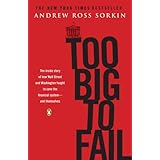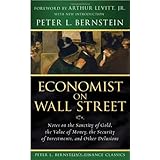The United States does not have business sponsored by the Government as Fannie Mae and Freddie Mac to support the housing market. At least that's what Anthony Sanders, Professor of finance of the estate to George Mason University, told the House Subcommittee on capital markets and Government sponsored enterprises last week.
Business sponsored by the Government (ESE) back today because more than 90 per cent of all housing loans, they have crowded out private and distorted the landscape of the housing-finance sector lending, said. Sanders "Fannie and Freddie will not be missed, nor their absence will make a difference for the market of housing or the economy, especially if taxpayers are no longer on the hook for other losses," testified.
Since it broke out of the housing bubble, the Government spent more than 160 billion dollars of taxpayers ' money to finance a deformation of the two giants of the Federal mortgage refinancing. Obama administration has said it plans to slow down the influence of Fannie and Freddie to trim the Government's role in the housing market, and Congress has invited several experts market housing to offer opinions on the best ways to limit the participation of the Government. Sanders presented seven proposals for the Sub-Committee of the House to facilitate the transition, including forcing Fannie and Freddie to dispose of assets not essential to their mission and recovery of funds of rescue for the duo in distress to $ 200 billion.
[Images: 6 issues each investor should follow.]
U.S. News recently spoke with Sanders about prospects of Fannie Mae and Freddie Mac. Excerpts:
What the next few years are similar for ESE?
Over the next few years, there is much to do with the ESCO. I recommended a period of gradual reduction of five years. It will be slow to start, simply because the housing market — in part because of the ESCO - is such fragile form now.
The concern of both sides of the aisle, is that any mass interruption would be bad for housing and consumer market. I am not with who. There is sufficient concern from Democrats and some Republicans about removing subsidies from the Government for the housing market. Same HUD [U.S. Department of housing and urban development] has recognized we oversubsidized the housing market, and we have really should be removing that.
Does this mean that there are no place for Government grants in all housing market?
We have the FHA, which is primarily for the first time buyers, but everyone forgets that HUD section 8 and that he has a mission of multifamily big. It is not strictly defined as people say it is.
[See 7 ways to Cope with the distress of foreclosure.]
Too Big to Fail: The Inside Story of How Wall Street and Washington Fought to Save the FinancialSystem--and Themselves (Kindle Edition)
Too Big to Fail: The Inside Story of How Wall Street and Washington Fought to Save the FinancialSystem--and Themselves (Kindle Edition)
By Andrew Ross Sorkin
Buy new: $9.99
Customer Rating:
First tagged "finance" by Heidi Harkins
Customer tags: financial storytelling(2), recession(2), history, 21st century, finance, kindle version faulty, history finance banking, historical fiction, banking, banks, andrew ross sorkin, ebook
What is the problem with a market dominated by the GSE mortgage?
Fannie and Freddie used to be the gold standard of mortgage loans. They are not lenders, but they would buy loans high deposit, credit score high. Why the Government have to be in this market? The private sector can purchase down payment loans, high credit-score high with private or other types of improvements mortgage insurance on loans.
Here is the problem. When the Government is in this space, they crowd out and hunt the private market. In fact, they have led in the risky mortgages. If we sit here today and the private market does not work in terms of securitization. We their stranded in risky space and it detonated.
How we encourage private-sector lending?
Right now, Fannie and Freddie purchase loans of very high quality, they have very tight underwriting standards, and that they apply to the guarantee. We don't know yet how the global economy will receive mortgages without a guarantee.
There could be a very simple way to get the private sector. Why don't have Fannie and Freddie make an experience? Why did they do these high quality mortgage same they are subscription or purchase, and implement new mortgage-backed securities without a guarantee? Development of application and see what people bid on it.
Economist on Wall Street (Peter L. Bernstein's Finance Classics): Notes on the Sanctity of Gold, the Value of Money, the Security of Investments, and Other Delusions (Paperback)
Economist on Wall Street (Peter L. Bernstein's Finance Classics): Notes on the Sanctity of Gold, the Value of Money, the Security of Investments, and Other Delusions (Paperback)
By Peter L. Bernstein
Buy new: $14.47
60 used and new from $8.00
Customer Rating:
First tagged "finance" by Danny Hsu
Customer tags: stock market, economics, finance
Get New Article Alerts In Your Inbox
Subscribe to Finance Knowledge Article Alerts to get daily notifications of our newest articles in your email for free. You can unsubscribe at any time. share your opinion about Do we need of Fannie and Freddie? -U.S. News & World Report by comment on below post.
Thank you in advance.
Yours sincerely,











0 comments:
Post a Comment